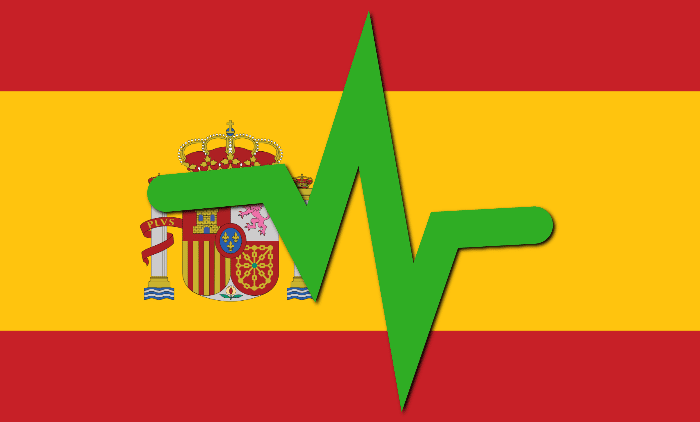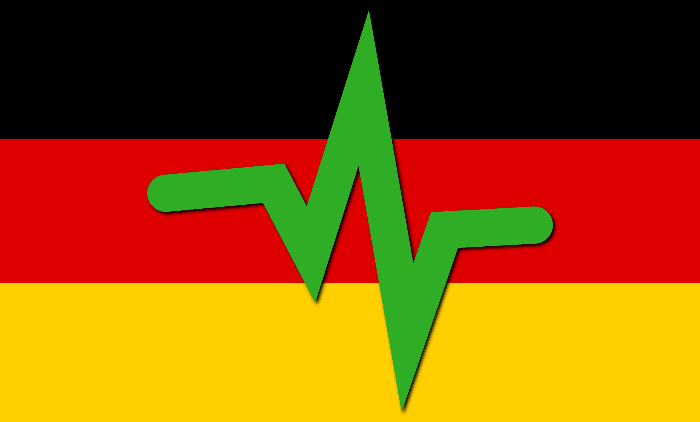The power of touching ourselves: these are the proven health benefits
[ad_1]
“Don’t touch, why are you touching?” Amador Rivas, the character from ‘La que se cerca’, usually asks with a grim expression, every time someone, usually Leo, touches him for whatever reason. It may seem strange to start an article about scientific research by mentioning the popular television series – don’t believe it, there are university studies that analyze its most hackneyed phrases – but you will immediately see that it makes sense. Because science has long proven that physical contact is beneficial for health, both physical and mental. A hug, a massage, a love… help adults reduce anxiety or improve when they are depressed. Babies are known to gain weight, for example. As surprising as it may seem, it’s even worth it if it’s a robot that touches us. Even a thick blanket works, the one that keeps us warm and tucks us in until we fall asleep.
All this has been confirmed by researchers from the Dutch Institute of Neuroscience and the University Hospital of Essen, in Germany, in an article published in the journal Nature Human Behavior. The work consisted of reviewing more than 200 studies on the subject in which almost 13,000 people had participated. To date there was research that indicated this was the case, but sometimes it was contradictory. In this meta-analysis – in science it is normally considered that these results are more solid than those of a single investigation – they have proven that “tactile interventions are beneficial for the physical and mental health of both healthy and sick people of any age. It is serious work and high scientific impact, says Carlos Matute, president of the Spanish Society of Neurosciences (SENC).
The advantages are many. “In adults they reduce pain, feelings of depression and anxiety,” the authors explain. There are also benefits, although minor, on sleep, heart rate and blood pressure. In newborns, as mentioned, they gain weight “and regulate the levels of cortisol”, the ‘stress hormone’.
What if it’s a machine that touches us?
Having established this, a series of questions arise: does it have to be the partner, a friend or a loved one who touches us or does anyone do? And a robot? How often does physical contact have to occur? It may be surprising, but who we get is irrelevant. It doesn’t matter if it is our partner, the hospital doctor or our trusted ‘physio’. “No health benefits were found in adults when comparing touch applied by a family member or a health professional,” they state categorically. With babies it is different. In their case, their thing is that they have physical contact with the parents. What if we get a cold machine? It may be cold, yes, but at least from the point of view of physical benefits there is no difference, according to these researchers.
Reduces pain, reduce anxiety, relieves depression and babies gain weight
This may have a good side. “There are many people who need improvements in their well-being, perhaps because they feel lonely but also because they may be affected by clinical conditions. These results indicate that a tactile robot, or even a simple weighted blanket, has the potential to help these people,” they say. Another thing is for mental well-being. There, human contact is better: “Mental health disorders such as anxiety or depression could require human contact, perhaps suggesting the importance of an emotional component associated with contact.”
And the animals? There are therapies, with dogs, horses and even dolphins, but in this case there is no clear conclusion due to lack of studies. “It would be useful to see if contact with an animal or pet could improve their well-being and, conversely, if they also benefit from it, but unfortunately there are simply not enough studies, nor adequately controlled ones, for us to draw general conclusions about these aspects”.
Better on the face than on the arm or torso
The best care or massage we can receive is on the face and scalp, much better than on the torso or arm. And regarding frequency, a frequent brief hug is better than a comforting but sporadic massage. «A greater number of sessions was positively associated with improved outcomes for traits such as depression and anxiety, but also with reduced pain in adults. Unlike the number of sessions, increasing their duration – the average of the cases studied was 20 minutes – did not improve the health effects. “In fact, we found some evidence of negative relationships in adults between cortisol and blood pressure.” In summary, Amador, “receiving contact is vitally important. “Touching can be used systematically throughout the population to preserve and improve our health.”
[ad_2]
Source link



